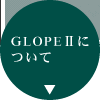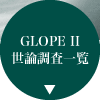予定表 -詳細情報-
| 件名 | LS 高橋直浩氏 |
| 開始日時 | 2011年 10月 4日 (火曜日) 12時15分 (GMT+09:00) |
| 終了日時 | 2011年 10月 4日 (火曜日) 12時50分 (GMT+09:00) |
| 場所 | 1号館401教室 |
| 詳細 | 【日時】:10月4日(火) 12:15〜12:50 【場所】:1号館401教室 【報告者】:高橋直浩氏(早稲田大学経済学研究科) 【報告タイトル】:"Risk perception and consumer behavior toward BSE" 【概要】 The primary purpose of my discussion is to identify the impact on beef consumption in Japan of the announcements of “the first cases of BSE” in Japan and the U.S. and those of “the safety secured” for these cases. The empirical analysis shows that the announcement of “the safety secured for domestic beef” seems to have helped restore the confidence in domestic beef, while that of “the safety secured for U.S. beef” does not appear to have had a significant impact on consumers’ risk perception of U.S. beef. Given the findings, I also try to explain, using the game theory and assuming “emotional” consumers, why they responded to the two announcements in different manners. I conclude that the announcement of “the safety secured for domestic beef”, in which the effect of testing all cattle on the safety was exaggerated, might have given consumers the bias for their perceived risk, leading them to behave in a different way toward the next announcement for U.S. beef. ※ This talk will be given by English. |
| カテゴリー | 政治経済学基礎セミナー・ランチタイムセミナー |








